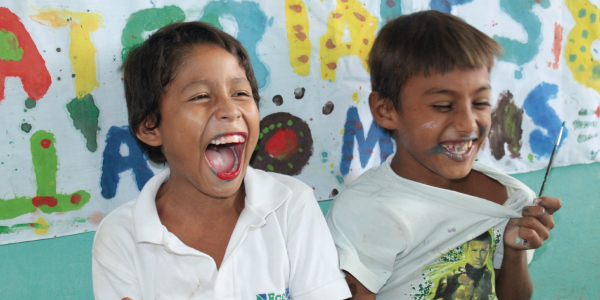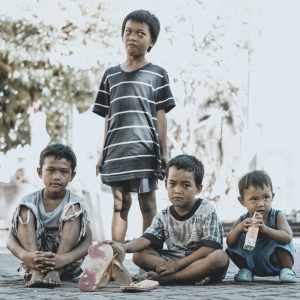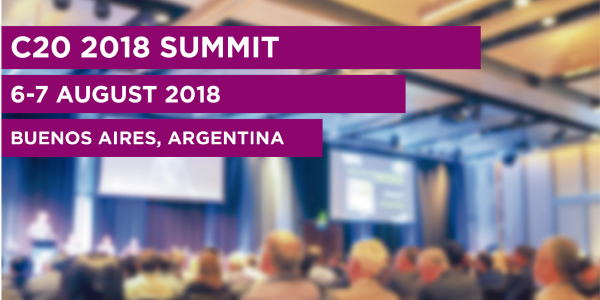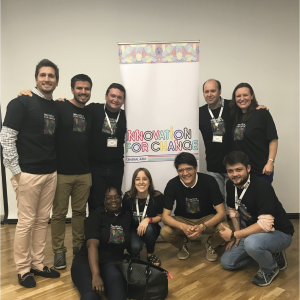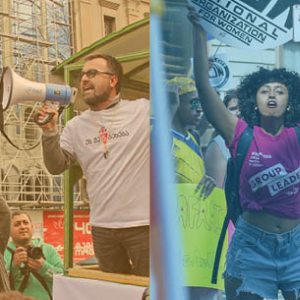América Solidaria accompanies us as partner since 2017 and we want you to know them. That is why this month we interviewed Mariana Gónzalez Sbarbi, Director of Partnerships to tell us more about the work of the organization.
Mariana, told us that they join RACI “since, from América Solidaria, we deeply believe in the power of generating alliances to articulate, in order to overcome child poverty, the development and sustainability of vulnerable communities of the continent. In this way, we aim to globalize solidarity and project cooperation between countries for a fairer continent, breaking down borders and deepening our commitment to reality beyond our countries.”
América Solidaria, has been working for 15 years, assuming the commitment to build a continent where there is no girls or boys in poverty, with the conviction that a fairer and inclusive America is possible. With this objective, they promote a network of professional volunteers who are involved with the most vulnerable communities of the region, in pursuit of their development and sustainability. They currently have offices in 8 countries: Argentina, Chile, Colombia, United States, Haiti, Peru, Uruguay and Mexico and more of 90 professionals developing field projects in 11 countries of America.
About the utility that America Solidaria finds at the time of taking part of the Network, Mariana explained that in RACI they found “a space of articulation, of meeting and updating of novelties of the social sector, where not only they share local, regional and international opportunities, but also habilitate spaces of training, exchange and joint construction.” She added: “we believe it is an opportunity to join forces and align ourselves in the construction of a country and a continent responsible for their poverties.”
To carry out their job, they made alliances with other Organizations of the Civil Society, designing and managing the projects jointly. They are led by professional volunteers that work together with the most vulnerable communities of America, in order of improving their life quality and build more and better opportunities for children and young people.
“In Argentina, since 2015 we have been promoting projects of communitarian development, training and advocacy, with the objective of leaving installed capacity in the communities, empowering and promoting young people as agents of change, and build a committed and socially responsible outlook on issues of poverty and exclusion.
During 2015 and 2016, we worked in the neighborhood of La Boca and Los Ceibos, Federal Capital, with a focus on the family economic development. In 2016 we started working in Salta Capital, with a focus on labor insertion and strengthening life projects; and since 2017, we promote the implementation of a psycho-pedagogical cabinet in Pilar, working to strengthen the entire educational community.
This year, we began to work in integral alphabetization in a day center in Florencio Varela, province of Buenos Aires; we arrived for the first time in Chaco, to start a project in four rural schools in Tres Isletas, with the objective of combating scholar dropouts. Currently, we continue working on the strengthen of life projects in Salta Capital and in Embarcación, Salta, we began to implement a new line of health promotion and addiction prevention in a new educational center, reaching, in 2018 in every region where we are present, up to 4045 people in every community”.
As a result of their first year as a member of RACI, Mariana commented: “we are grateful for the opportunities made available to make visible urgent problematics of our country and continent, and the work that we are carrying out in order to overcome child poverty. We value the fluidity and effectiveness when it comes to create networks and channeling opportunities and calls, such as the willingness to support the dissemination of projects and generating spaces of exchange and joint dissemination.”
We thank Mariana for her time and for participating. If you want to know more about América Solidaria, you can do it entering in the following link: http://americasolidaria.org

